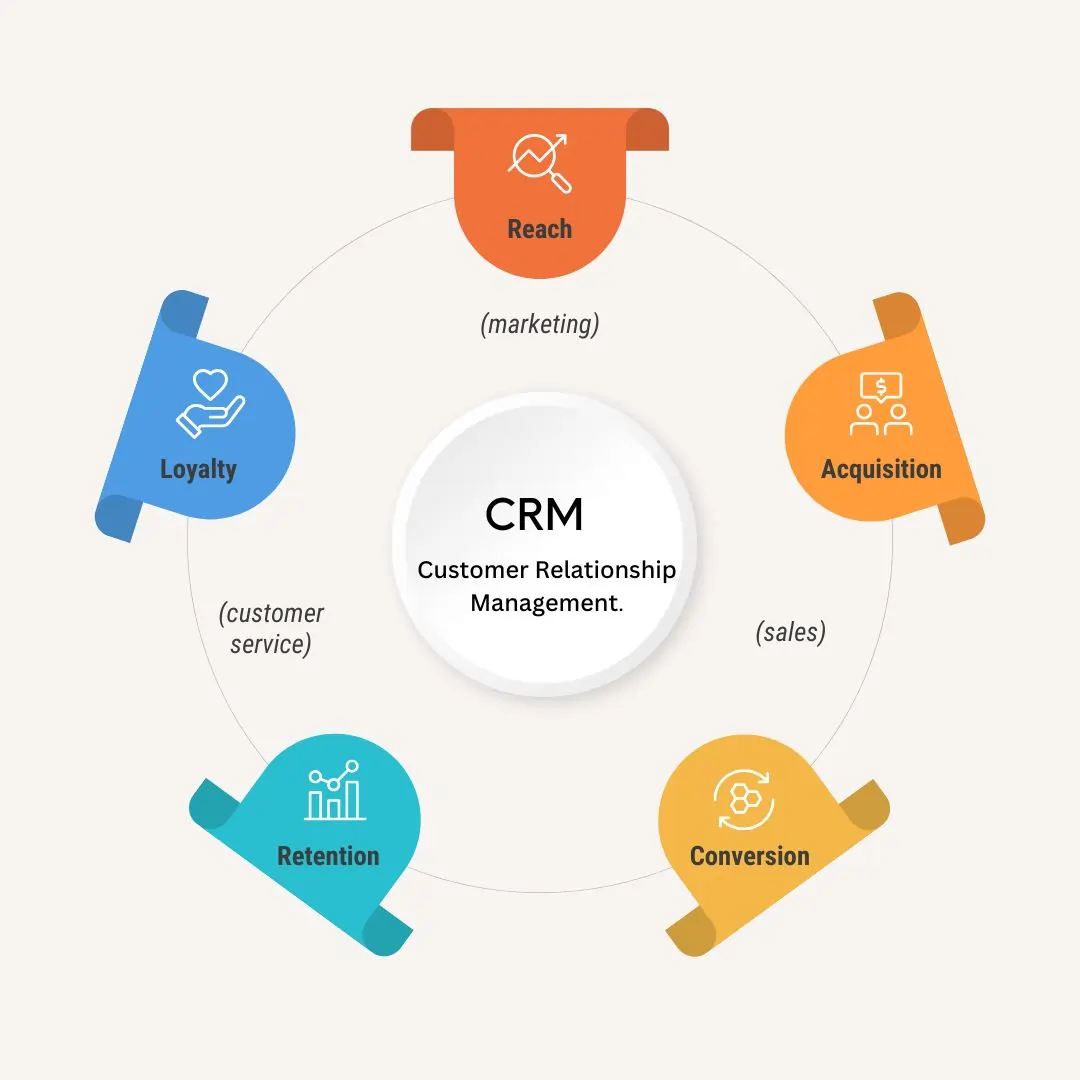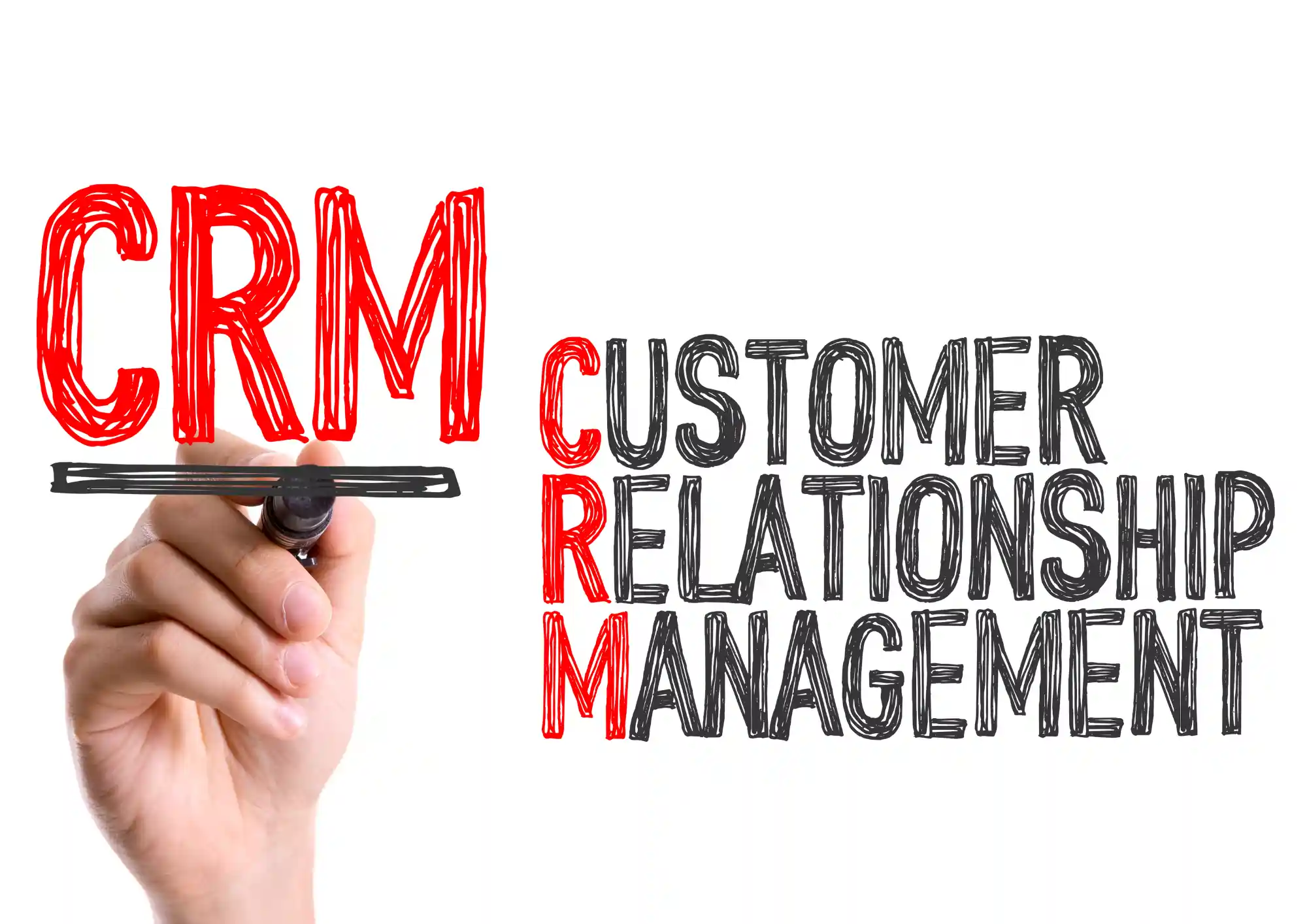Confused about CRM software? You’re not alone. It’s 2025, it has every size of business buzzing about it, and what is it exactly? CRM software defines this as a product to help you manage your customer relationships, drive sales growth, and save time — all in one place. Whether you’re an independent jobber, freelancer or a cog in a huge team, grasping CRM software can change the way you think and work.
“Do you know 94% of all businesses utilize customer relationship management tools to improve relationship with customers and drive sales? If you’re not incorporating one, you might be overlooking chances for growth!”
Why does it matter now? With the competition for business so intense and clients having high expectations around customization, CRM software is now not a choice, it’s a necessity. In this guide, we came to completely: what is CRM software, how it works, its features and benefits, types, examples, and how to choose best CRM? By the time you finish, you’ll have CRM software explained in a way that just works. Ready? Let’s get started.
Table of Contents
ToggleWhat is CRM Stand For?
CRM is an acronym for Customer Relationship Management. It’s a system, process or strategy that businesses have in place to either manage and analyse customer interactions and data to support the customer lifecycle.
The aim of CRM is to better manage customer relationships, improve customer services and increase sales growth through effective use of customer-related information.
CRM is more about identifying what the customer wants, making it all easier for them to access, and creating loyalists who continue to grow the company. Whether you run a small business or a large enterprise, CRM streamlines communication and ensures every customer feels special.
What is CRM software?
CRM (Customer Relationship Management) Software to helps businesses to manage their many interactions with customers, track sales, and automate and streamline processes to improve relationships. It’s a technology or software that helps in supporting and automating CRM strategies. It’s really the engine that fuels a CRM system and allows companies to effectively organize, track, and nurture customer data and activities.
It helps businesses:
Gather and categorize the customer data.
Track all customer interactions (emails, phone calls, and purchases).
Use this data to do a better job.
What Does CRM Software Do?
CRM software acts as an information/metric warehouse, where a business can track all its activities and performance (and all customer activities as well), allowing the business to get a complete picture of the businesses’ performance over time. It works as a digital assistant to keep track of customer relationships. By making everything organized and actionable, CRM software frees up time, minimizes mistakes and allows businesses to form more solid connections.
Great whether it’s a small new business or an all-singing all-dancing corporation, CRM software fits to suit and grow.
CRM software helps businesses:
- Store Customer Data:
Stores contact information, purchase history, preferences and communication records in a centralized database. - Track Interactions:
Records each interaction with a customer (email, call, meeting, engagement on social media). - Manage Sales:
Tracks the sales process from lead generation to deal close, often with visual pipelines. - Improve Customer Service:
Manages support requests and receives issue or question about software. - Automate Tasks:
Takes care of repetitive tasks like sending follow-up emails, scheduling appointments, or updating records. - Analyze Data:
Reports and analyzes customer behaviors, sales performance, and marketing effectiveness.
Businesses in the modern era rely on CRM systems so that every customer feels important and important. Whether large company or small shop, a robust CRM model brings them opportunities to grow and thrive.

Types of CRM software
Different Types of CRM Software: How Can a CRM Help Your Business? Let’s explore them:
1. Cloud-Based CRM
This kind lives on the vendors’ distant servers, so you don’t need your own hardware. It’s ultra convenient — you can access it from a browser or app anywhere on the internet. It deploys quickly, can update itself and scales with your business with flexible subscription plans – ideal for teams on the go.
- The vendor hosts it on remote servers, so you skip the local setup.
- You access it via browser or app on any internet-connected device.
- It launches quickly, updates automatically, and scales with subscriptions.
- Examples: Salesforce (delivers enterprise tools), HubSpot (offers free tier, marketing focus).
2. On-Premises CRM:
You just install this on your company’s servers yourself and it’s all yours. It does, however, require an IT team to manage installation, updates and security, and it carries a hefty upfront cost.
- You install it on your own servers and own it outright.
- IT team sets it up, updates it, and secures it; you pay high upfront costs.
- It keeps data in-house and runs without internet.
- Example: Older Microsoft Dynamics (integrates with Microsoft ecosystem).
3. Open-Source CRM:
This open-source software provides you with its source code to do whatever you please. You host it yourself, and the official support is minimal — think community forums — so you’d better have some tech skills.
- You download free software and edit its code for customization.
- You host it yourself and rely on technical skills; the community supports it.
- Example: SuiteCRM (tracks sales, adapts to needs).
- It fits budget users who know tech.
Benefits of Using a CRM software
Why should a business use a CRM model? Here are some key benefits:
- Happier Customers:
Customers are more likely to return when they feel valued. - Better Organization:
All customer information is stored in one place, making it easy to access. - Faster Service:
CRM tools help businesses respond quickly to customer questions or problems. - Increased Sales:
A good CRM model helps businesses identify what customers want, leading to more sales. - Data-Driven Decisions:
Businesses can use customer data to make better product and service decisions.
key features of the CRM software
Here is a brief overview of major CRM features, short but helpful:
- Contacts Management:
Keeps all customer contact (i.e. name, email, phone number) information in one place and easy to access and update. - Lead Management:
It receives prospects through the sales cycle, usually with priority and eventually downgrades them if the leads are not up to the mark. - Sales Pipeline Management:
Shows sales stages, eg prospecting and close, to see progress and track sales pipeline. - Marketing Automation:
It automates things like email campaign and lead nurturing so you can keep a continual touch. - Sales Force Automation:
Automates repetitive sales tasks (such as follow ups and quotes) in order to save time. - Reporting and Analytics:
Its dashboards give visibility into sales, customer activities, campaign progress. Customer Service Tools:
Offers ticketing and chat support that help customers with their issues at a quick pace.Mobile Access:
Provides apps or customizable design for CRM management wherever needed.- Email Management:
Email, social media, or accounting integrations to give those workflows a polish. - Integration Capabilities:
Email, social media, or accounting integrations to offer seamless workflows.
These characteristics help organizations navigate their connections, operate more effectively and grow well, and can be customized to one’s own needs.
CRM Software Examples:
CRM software helps businesses manage customer relationships. Here are some examples:
- Understand Your Goals
Decide what you want to achieve. Is it better customer service, more sales, or something else? - Salesforce:
Tracks sales, manages leads, and offers cloud-based tools. - HubSpot:
Free CRM with marketing and sales features. - Zoho CRM:
Affordable, with automation and customization. - Pipedrive:
Focuses on sales pipelines and lead tracking. - Microsoft Dynamics 365:
Integrates with Microsoft tools for sales and service.
Industries That Use CRM
CRM models benefit various sectors by managing customer relationships effectively. Below are key industries and how they use CRM.
- E-commerce and Retail
- Financial Services
- Healthcare
- SaaS and Technology
- Real Estate and Hospitality
- Manufacturing
- Education
- Nonprofits
How to Choose the Right CRM software:
Here are some tips for choosing the right CRM model:
- Understand Your Goals
Decide what you want to achieve. Is it better customer service, more sales, or something else?
- Understand Your Goals
- Know Your Customers
Think about what your customers need and how you can meet those needs.
- Know Your Customers
- Start Small
If you’re new to CRM, start with a simple model and expand as your business grows.
- Start Small
- Plan for the Future
Choose a CRM model that can adapt to your business as it grows. - Scalability:
Will it grow as you do? Check feature limits. Budget:
Free plans (HubSpot) exist—don’t overspend early.
- Plan for the Future
Who Should Use CRM Software?
Who benefits from CRM? It’s not just for corporate giants—here’s who it’s for, explained:
- Small Businesses: Manage growth without drowning in details.
- Enterprises: Coordinate complex teams and huge client lists.
- Freelancers: Track clients and gigs without losing track.
- Teams: Sales closes deals, marketing targets audiences, support fixes problems—all with one tool.
Picture a freelancer using CRM to remember a client’s deadline, or a sales rep spotting a hot lead. CRM software explained for users? It’s universal—anyone with customers can win.
CRM’s Customer-Centric Approach: Why It Matters
In the modern digital age, companies succeed based on the power of customer relationships rather than transactions. A customer-focused CRM assists by:
- 360° Customer View – Pools data for personalized interactions.
- Personalized Experiences – AI helps give insights for custom recommendations.
- Automated Support – Enjoy faster responses with automation and chatbots.
- Customer Retention – Monitors engagement, avoiding churn.
- Feedback Integration – Utilizes data to improve services.
Conclusion
So, what is CRM software? It’s your key to managing customers, growing sales, and simplifying work in 2025. With this guide, you’ve got the full picture—how it works, its benefits, and the types to explore—plus proven tips to make it yours. Whether you automate emails or track leads, CRM can transform your business.
Start today: Try HubSpot’s free plan, test Zoho, or dive into Salesforce. Apply these tips, and watch 2025 become your best year yet.
